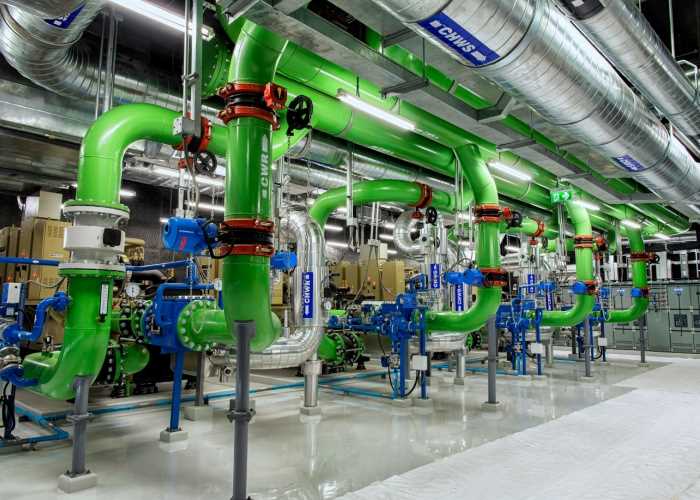The cooling needs of industrial facilities can vary greatly depending on factors like purpose, equipment, and environment.
Whether you're dealing with heavy machinery that generates excess heat or maintaining a stable climate for sensitive products, there’s no one-size-fits-all solution.
Different cooling systems are designed to meet specific demands, ensuring that your facility runs efficiently and safely. By understanding the options available, you can select the system that best fits your unique requirements while managing costs and energy use.
Industrial cooling systems are designed to manage and control the temperature in large commercial or industrial spaces. They prevent machinery from overheating, protect products, and maintain a comfortable environment for staff.
These systems are often used in factories, data centres, warehouses, and manufacturing plants where temperature control is critical to business operations.
Depending on the system, they can use air, water, or refrigerant to cool the air or equipment.

Air-cooled systems rely on fans to move air across a heat exchanger to remove heat. These systems are compact, easy to install, and cost-effective, making them ideal for smaller facilities that don’t have high, continuous cooling demands.
They perform best in moderate climates and spaces where ambient temperatures remain relatively stable, as they can be less efficient in extremely hot conditions.
Small manufacturing plants or storage facilities that house non-temperature-sensitive materials can benefit from air-cooled systems. The simple design requires minimal infrastructure, making it a good choice where the available space is limited.
Water-cooled systems are highly efficient, especially in larger facilities or environments that generate significant heat.
These systems work by circulating water through pipes to cool spaces or equipment. While they are more complex than air-cooled systems, requiring a cooling tower and regular water treatment, they offer a longer lifespan and are more effective at handling high cooling loads.
Facilities such as food processing plants, large data centres, or automotive factories benefit from water-cooled systems due to their ability to handle heavy cooling demands and maintain stable operations, even in high-temperature environments.
Evaporative cooling systems work by passing warm air through water-soaked pads, cooling it via evaporation. This makes them incredibly energy-efficient, using less electricity than traditional air conditioning systems.
However, they require a steady supply of fresh air and perform best in dry environments. They are not well-suited for humid conditions, as the evaporation process relies on the air's ability to absorb moisture.
Evaporative cooling can be a cost-effective option where large, open spaces need cooling, such as warehouses and distribution centres.
VRF systems offer flexible cooling solutions by adjusting the flow of refrigerant to match the needs of different areas within a facility. This allows precise temperature control across various zones, making VRF systems ideal for buildings that require cooling for multiple purposes.
They can also provide both cooling and heating, making them a highly versatile option.
VRF solutions are commonly found in office buildings, hotels, or mixed-use facilities, where different rooms or zones require independent temperature management. While installation costs can be higher, VRF systems offer energy savings and long-term value.
When deciding on the right industrial cooling system for your facility, consider the following:

At Loughborough Air Conditioning, we’re experts in the design and installation of industrial cooling systems.
Whether you're installing a simple air-cooled unit or a complex water-cooled network, our team provides an end-to-end service, from initial consultation to system design, installation, and testing. We work with you to understand your operational requirements, space constraints, and long-term cooling needs.
We also offer long-term maintenance contracts to keep your cooling system running at peak performance.
Regular maintenance reduces the risk of unexpected breakdowns, extends the lifespan of your equipment, and helps you avoid costly repairs. Our team is equipped to handle all types of cooling systems, ensuring that your facility remains efficient and productive year-round.
